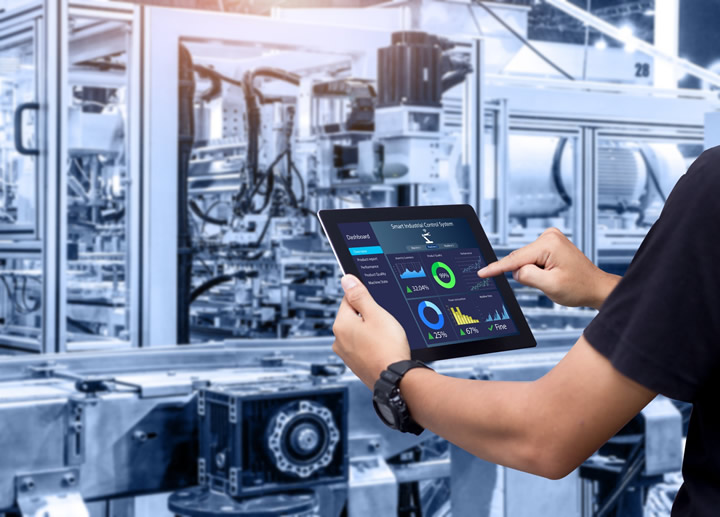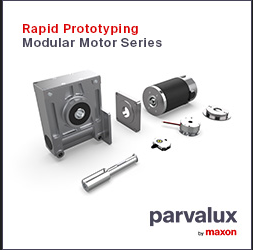Change in the technology buzzword blizzard - Automation specialist explains the latest trend: hyper-automation

For years, Industry 4.0 has been a term that has grabbed the attention of not just business leaders, but political leaders too. Offering increased interconnectivity and networked intelligence through the Internet of Things (IoT) or other cyber-physical systems, Industry 4.0 is far more interlinked than revolutions before. However, there is a fine line between elegant networking and a tangle of hyper-automated systems, argues George Walker, managing director of industrial automation specialist Novotek UK & Ireland.
Bill Gates once said, “we always overestimate the change that will occur in the next two years and underestimate the change that will occur in the next ten. Don’t let yourself be lulled into inaction.” While Industry 4.0 might still be evolving, the underlying premise of Gates’ statement should not go ignored.
Industry 4.0 or the Industrial Internet of Things (IIoT), whichever term you prefer to use, has given businesses across the globe an opportunity to improve productivity and drive growth. It isn’t one technology, but the combination of several brought together to produce something greater than the sum of its parts.
Businesses that fail to adopt emerging technologies like automation and intelligent algorithms are dooming their company to fail against the crushing competition of more progressive business leaders in their market space. With that said, however, we are on the precipice of another issue regarding Industry 4.0, and this is what is now being coined as hyper-automation.
Excessive automation
Hyper-automation, as the name may suggest, relates to excessive automation. This is something that Elon Musk pleaded guilty to in 2018 after the production line for the Tesla Model 3 came to a complete halt for four days. Musk claimed that the automotive plant in Silicon Valley became a manufacturing nightmare, with its complex network of conveyor belts struggling to manage production and instead resulting in bottlenecks.
While this may be an extreme example, it highlights how businesses can take adoption of digitisation, connectivity and artificial intelligence to an extreme, without understanding the full scope of what they hope to achieve. Hyper-automation at its finest.
While the tools to automate processes clearly exist, most of us know that no tool comes necessarily ready for immediate use out of the box. Often, the implementation of a new technology will require specialist expertise as offered by our colleagues at Novotek, to make sure it is fit for purpose and meets your business goals.
Implementing change
Now, what businesses shouldn’t do is look at Musk’s situation and turn their heads away from all technology related to the fourth industrial revolution. Rather, businesses should thoroughly understand the process that they wish to automate and, the flexibility of the options available. Then, they should test the solution ahead of integration with digital twinning, one of the latest technologies to emerge from Industry 4.0.
Digital twinning software packages allow plant engineers and managers to virtually replicate a physical asset to test every process, feature and system without interrupting the physical process. Effectively, managers can remotely control and monitor all aspects of their plant’s operations and simulate how process changes will affect production.
“The first rule of any technology used in a business is that automation applied to an efficient operation will magnify the efficiency. The second is that automation applied to an inefficient operation will magnify the inefficiency,” famously said, once again, by Bill Gates.
Think long-term
For companies like Amazon and FedEx, the adoption of automation has allowed them to enhance customer experience, while also improving the performance and efficiency of logistics tasks. The reality is that businesses need to be prepared in today’s highly competitive markets to prioritise revenue-generating applications over cost-saving ones for long-term benefit. In this instance, hyper-automation has enabled these businesses to upscale and grow exponentially.
There’s no doubt that Industry 4.0 has revolutionised the manufacturing industry and began creeping into all facets of our day-to-day life. The digitisation of processes, improved connectivity with the assistance to the internet and smarter machines as a result of AI have cumulatively led to the world into an age of hyper-automation.
Today, robots crowd factory lines, algorithms have the capability of steering cars and smart screens dominate the checkout isles. Rather than seeing hyper-automation as the latest buzzword striking fear among business leaders, organisations should take the sentiment of the word to making sure they consider how embracing the latest technological advancements will affect their business.
By weighing up the needs of its operations and what’s needed to support growth and improve efficiency, businesses can avoid being swept up in the latest craze and take the right actions to achieve their goals.
Comments (0)
This post does not have any comments. Be the first to leave a comment below.
Featured Product

